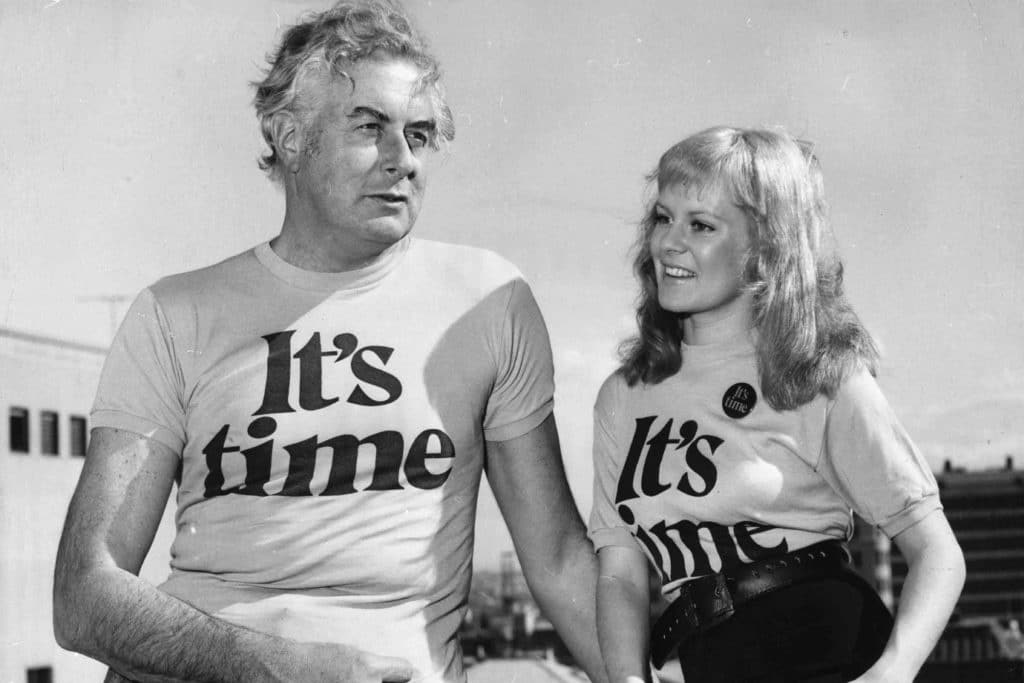The removal of the sales tax on the contraceptive pill, and the addition of the pill to the list of pharmaceutical benefits, which reduced its price to $1 per packet, was brought into law just days after the election of Gough Whitlam as Prime Minister, on 9th December 1972. Fifty years later, we should recognise and celebrate this significant moment for Australian women, write Rose Jackson MLC and Professor Michelle Arrow.
2022 marks the 50th Anniversary of the election of the Whitlam Government in December 1972. This was a monumental moment for Australia.
After 23 years of conservative rule, ‘It’s Time’ truly captured the depth of frustration and the spirit of optimism amongst the Australian community for a new approach to politics.
The legacy of the Whitlam Government is the stuff of legend. He is remembered as an influential and inspirational leader not just because of the energy of the 1972 campaign, but because of the genuine reformist zeal of the new government. The list of achievements is long: ending conscription, releasing draft resisters from prison, bringing our troops home from Vietnam, free tertiary education, the Racial Discrimination Act, re-setting relations with China, independent for Papua New Guinea, bringing urban renewal into the centre of Federal Government and many more.
There is one decision – one early and largely administrative decision – that although had one of the most significant and long-lasting impacts is occasionally overlooked or ignored. It was a decision of the utmost significance for Australian women. The removal of the sales tax on the contraceptive pill, and the addition of the pill to the list of pharmaceutical benefits, which reduced its price to $1 per packet, was brought into law just days after the election of Gough Whitlam as Prime Minister, on 9th December 1972.
The introduction of the contraceptive pill in January 1961 was a seminal moment for many Australian women. However, the pill could be difficult to obtain if you were not married and many doctors refused to prescribe it to single women throughout the 1960s. It was also expensive, and out of reach from many working-class women. Australia at this time banned the advertising of contraceptives, and the sales taxes and tariffs applied to contraceptives added significantly to their cost.
By the late 1960s, the women’s liberation movement in Australia was demanding bodily autonomy and reproductive freedom. Abortion was part of the way women exercised that right, but contraception was even more important.
It is well recognized by women that if you cannot control your fertility, you cannot control your life. As a direct result of this decision in early December 1972, many Australian women had for the first-time genuine access to reproductive health options that liberated them from the physical, mental, and emotional stress of unwanted pregnancy. It was genuinely life-changing and laid the groundwork for the advances made by the women’s liberation movement throughout the 1970s and 80s.

It’s worth noting the commitment of the Whitlam Government to supporting Australian women extended well beyond its ground-breaking decision to make the contraceptive pill widely accessible. Between 1973 and 1974, the Whitlam government opened 100 family planning clinics around Australia supporting women’s reproductive health and making contraception even more widely available for all Australian women. A 1975 inquiry into national population remarked that ‘the evidence before the Inquiry is that Australian women are amongst the most effective contraceptors in the world.’ The Whitlam Government also introduced the Family Law Act in 1975, establishing no-fault divorce for the first time.
It’s worth taking a moment – 50 years on – to recognize and celebrate this significant moment for Australian women. It reminds us of the power of government to support women’s reproductive choices, a power that was exercised because of the determination of the feminist movement to campaign for change. The reality is, these advances are not to be taken for granted. The power of government can also be used to undermine our hard-won freedoms.
It was only recently that abortion was decriminalized in NSW, again thanks to the activism of a diverse coalition of women, and already there are calls from some Members of Parliament and political candidates to reconsider and reverse this decision. In many parts of regional NSW, access to abortion remains limited as family planning options are unavailable and under-funded. The recent overturning of Roe v Wade exposed millions of American women to the sudden and catastrophic loss of their reproductive rights. Women must remain vigilant in organizing together to protect our health and our privacy, we must continue to share stories of the things we have achieved and the work we still need to do, and we must ensure we use our substantial voting power to elect governments – like we did with the Whitlam Government 50 years ago in 1972 – who will use their power to deliver for Australian women.
Rose Jackson MLC is a Labor Member of the NSW Legislative Council, the Shadow Minister for Water, Housing and Homelessness and sits on the Board of Directors of the Whitlam Institute.
Michelle Arrow is Professor of Modern History at Macquarie University and a Research Fellow at the Whitlam Institute. She is editor of the forthcoming collection Whitlam and Women: Revisiting the Revolution which will be published by NewSouth in April 2023.

